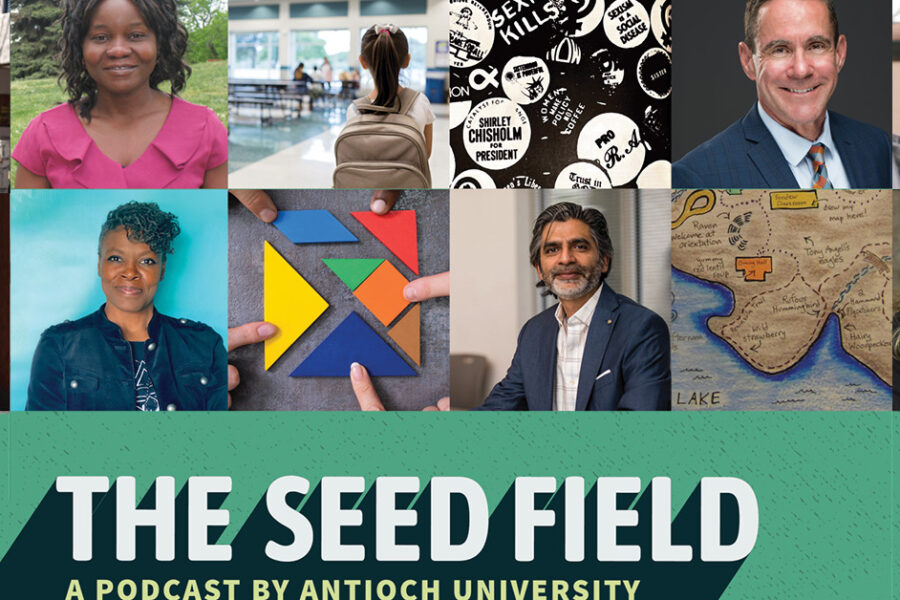Three Stories of PhD in Leadership and Change Alums who found Support and Friendship in Former Classmates
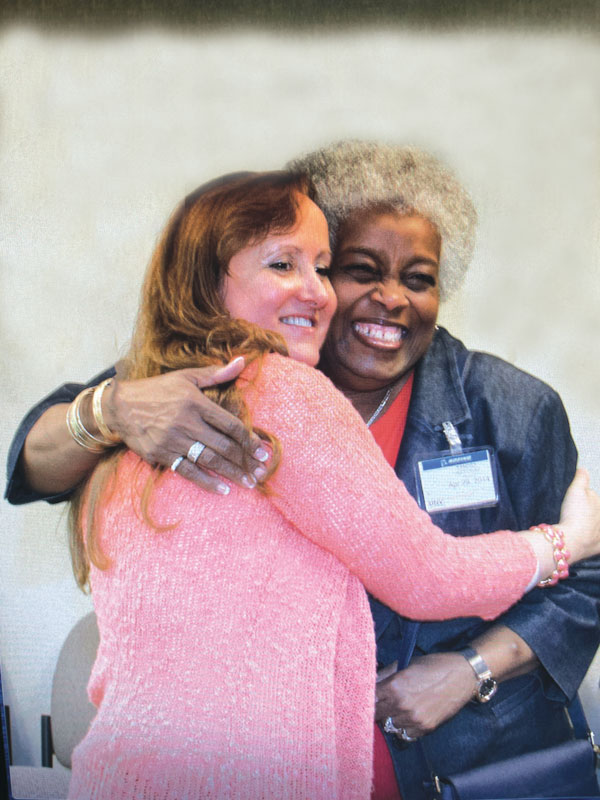
Students studying in Antioch’s PhD in Leadership and Change are encouraged to form friendships and connections with their peers. In part this is good practice for developing leaders. After all, nurturing healthy and collaborative relationships is a key leadership skill. But connections formed in the program often last long beyond graduation, and they improve the lives of alums in ways they sometimes didn’t expect. Here are three stories of alums who have connected in areas far beyond the program—and ended up with richer lives for it.
Collaboration at Boeing, Antioch, and Beyond
The first time Joye Jepson ‘10 (GSLC, PhD in Leadership and Change; pictured, left) interacted with the woman who would become her closest work friend and professional collaborator was just before the start of a class she was teaching at Boeing’s Seattle headquarters. That day, as she describes it, “I knew I was in trouble when I walked in, and my Washington State Cougar coat was in the trash can.” She looked around the room and as soon as she saw Sandra Jeffcoat ‘08 (GSLC, PhD in Leadership and Change; pictured, right), “I knew it was her.”
Jeffcoat didn’t even fully understand why she had played this prank. “I’m not a practical joker. Believe it or not, I’m more on the shy side,” she explains. “But it was something about Joye…she always brought out not only the best of me, but she made me comfortable. I could do things around her and feel safe.”
They both laughed about it. And soon, with this incident as a founding myth, they became good friends. They were two women trying to climb the ranks of a giant, prestigious, and overwhelmingly male company. They made a point of having lunch together with some regularity, using this opportunity to compare notes and support each other.
In the years that followed both found success at Boeing. Jepson went from teaching into management, and before age forty she became an executive. Meanwhile Jeffcoat specialized on the technical track. (Boeing splits high-level employees into “techs” and “execs.”) Before too long, Jeffcoat rose to the level of Tech Fellow—the highest rank for engineers. She was the first African-American woman ever to achieve that honor at Boeing.
With these fought-for honors came plenty of responsibility. As Jepson explains, she developed a reputation as a troubleshooter. As a result, she says, “I kept getting programs that were in trouble.” Whenever someone tried to assign her to a new, intractible problem, she made the same request. “I always said, ‘Hey, if I’m going to do anything, I need a Tech Fellow to work with me.’ And so I made Sandi help me.”
They worked together on many problems over the years. One was to finish creating a unified employee portal for Boeing’s over 100,000 employees. Together, they took over a project that was failing due to over-ambitious technology and multiple team members “trying to run their own show,” as Jepson puts it. By the time they finished the project, they were under budget and ahead of schedule.
In 2001, Jeffcoat enrolled in the PhD in Leadership and Change, on the advice of a friend who was in the founding cohort. She ended up joining Cohort Two. And Jepson enrolled the following year. They supported each other throughout the program. Boeing actually paid their tuition, as employee development. “The only drawback,” says Jeffcoat, was that “after we finished, the [number of] problem children that we got to solve or fix grew. Joye and I got the impossible projects after that. But it was okay. Because we actually succeeded in spite of them.”
Jeffcoat’s successes were so notable that she was included in the book Trailblazers: The Women of the Boeing Company. “The reason I’m proud of that book,” says Jeffcoat, “is because Joye Jepson pushed me to the limit. And she believed in me when I didn’t believe in myself. And to get published in that book as a trailblazer means I did something right… I never dreamed I would ever be in anybody’s book. And so to be recognized as a trailblazer for somebody as big as the Boeing Company, is pretty darn awesome for me.”
Their collaboration and partnership is so strong, in fact, that since retiring in 2014, Jeffcoat and Jepson have been working on a book themselves. Preliminarily titled Working Together for Success and Leadership, it is about the power of collaboration between more technical and more managerial minds. They are currently looking for a publisher.
Even though neither lives in Seattle any more, the two remain dear friends and collaborators. Jeffcoat’s children are all boys, she says, “so Joye’s daughter is my daughter too.” And they stay in regular touch. When Jepson had just moved to Tennessee and was feeling lonely or down, “the person I called would be Sandi,” she says. “We’re just there for each other now.” As she puts it, they are “sisters of the heart.”
Jeffcoat expands on that, saying, “We’re sisters by different mothers. That’s our favorite saying.”
The Technologist and the Drama Coach
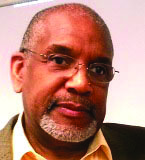
For Winston Maddox ’15 (GSLC, PhD in Leadership and Change), the most important thing in the world is family—especially his two children. This is something he learned from his own parents. They had grown up Black in the segregated South of the 1920s and ’30s and moved to the Northeast as young adults, part of the Great Migration. Despite living in a relatively safer region, “my father had this rule,” explains Maddox, “that you were supposed to know where your siblings were all the time. You had to know where everybody in the family was.” This vigilance kept everyone safe, and it also reminded the siblings that as part of a family they needed to be aware of what their family members were going through—and to take care of each other.
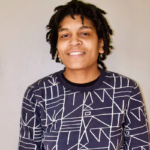
This thoughtfulness has carried over into being a father himself. For instance, after Maddox’s child, Rachel, graduated from college with a teaching credential and a bachelor’s in theater, he saw how competitive of a field theater is. Wanting to help, he and his wife Sheila worked to find a professional coach with a strong dramatic background who could help Rachel navigate their career and accomplish their dreams. The two were working on that when they stumbled into the name of a former classmate: Jessica Litwack ’15 (GSLC, PhD in Leadership and Change). When they realized that Litwack had gone to the same program Maddox had, Sheila said, “You know what? She’s done Antioch. She’s probably so used to thinking outside the box. That’s probably where we need to go.”
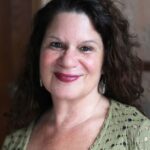
They ended up hiring her, and the partnership was a quick success. Litwack met regularly with Rachel both to strategize about their theater career but also to teach them specific techniques and strategies around playwrighting. “The way that I work as a coach is really about asking lots of questions and not having an agenda for the person,” says Litwack, “but really holding them and trying to facilitate their desires.” With Rachel she had a “brilliant, sensitive, self-aware, creative” student. And Rachel soon was re-energized to work on their plays in progress, and to pursue further opportunities.
“It was really useful to be able to have this lens and instruction to be able to move forward,” says Rachel. A major area where Litwack was able to guide Rachel was in navigating the balance between artistry and nonprofit work and teaching that defines life for so many theater professionals. “What’s so cool about Jessica is that she has so many skills to offer. Literally so, so, so, so many,” says Rachel. “She really gave me some invaluable tools.”
Today, Rachel is leaning into the teaching side of their art. This fall they took a job as a second grade teacher at Southside Elementary Charter School—a relatively new school in the Southside neighborhood of Providence, Rhode Island. This neighborhood has long had many Black and immigrant residents—and also, due to structural racism, has historically underperformed academically. Having the chance to work there and to set up a theater program for the school is a good application of Rachel’s talents, although the days are long. As they explain, “I have 24 rollicking second graders under my tutelage.” And they have also recently been commissioned by the Watertown Children’s Theater to write a play for sixth-to-ninth graders. They’re creating an adaptation of Ibsen’s classic, A Doll’s House.
Ultimately, the outcome of the connection that brought Litwack to coach Maddox’s child is a story still being written. Rachel Maddox’s career as a playwright is in early days. But it’s clear that their parents’ devotion to helping them accomplish their dreams—and the family’s decision to move forward with the Antioch alum option—has helped Rachel find their path.
It also gave Litwack the chance to see just how tight the parent-child bond between Maddox and Jessica is. As she says, “That relationship…was so inspiring.” Rachel also feels lucky to have the father they do. “I think that what he does is incredible,” they say, describing his work as a college professor and leadership scholar. “I think that he’s a superhero, truly.” And for Maddox’s part, when thanked for giving up an hour to talk about this story, he said, “If it concerns my children, it’s never time taken out of my day.”
Teaming Up to Inspire Health Leadership
For Amy Climer ’16 (GSLC, PhD in Leadership and Change; pictured, left), too, the connections she made while studying for her degree have brought interesting work opportunities. She has coached one former classmate and stayed in touch with others. But one connection in particular sticks out. That’s the one that gave her the opportunity to give back to an institution that made her very life possible.
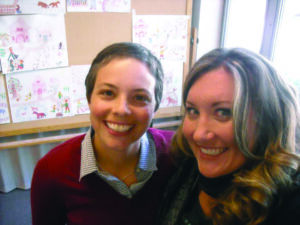
This story actually starts two years before she was born. That was when her mother, having had terrible headaches for sixteen years that no one could diagnose the cause of, drove 1500 miles with Climer’s father, traveling from Orlando, Florida to the famous Mayo Clinic in Rochester, Minnesota. “Mayo was their last hope,” says Climer. The doctors there determined that she had a life-threatening brain tumor, and they quickly operated to remove it. The tumor was in the back of her skull cavity, and it ended up being the size of a lemon. They told her that any day it wasn’t removed was a day she could have died. “Had she not gone to the Mayo Clinic,” says Climer, “she would have died. And I would never have been born.”
The poignancy of this brush with fate has been at the front of her mind more in the last few years, as Climer has found herself back at the Clinic, consulting on topics of leadership and creativity. “This is the way I get to work with this organization and sort of give back,” she explains. “I literally owe my life to the Mayo Clinic.”
It was a fortuitous connection through the GSLC that made this opportunity possible. That’s because during her studies she became friends with Tami France ’15 (GSLC, PhD in Leadership and Change; pictured, right) who until recently was working in leadership development at the Mayo Clinic. As France explains, by the end of the program “I looked to Amy as someone who was incredibly creative… I was really like, Oh my gosh, how can I tap into more of that creativity in the work that I do inside of human resources and learning and leadership development?” Before graduation, France traveled to Wisconsin to attend a class that Climer was teaching about how to make workshops more experiential and hands-on. And then in 2017 she invited Climer to present a one-hour webinar to her team.
One thing led to another, and by 2018, France found another way to bring Climer to the Mayo Clinic. At that time her team was developing a new, year-long leadership development program that aimed to train and develop the top talent in the succession pool for the highest roles at the 150-year-old institution. In recent decades, the Mayo Clinic has expanded to have three main hospitals (in Minnesota, Arizona, and Florida), to be a trusted and encyclopedic source of online medical information, and to be a major center for biomedical research. Its leaders oversee an organization with a budget of billions and over 60,000 employees.
For these future leaders, France was helping create in-depth training around important skills and vision for leadership. As she explains, “Our leaders were being asked to go through this programming in order to prepare them to think differently about leadership in healthcare moving forward.” The participants spent four intensive weeks over the course of the year taking these classes.
One of the weeks was devoted to creativity, and that’s where France worked to bring in her friend from the PhD who was a creativity expert. Climer ended up presenting a full-day, experiential workshop about her concept of “deliberate creativity”—the idea that creativity “will not happen by accident” but only works if you’re intentional about it. The workshop was a total success and led to further work consulting with the Clinic’s IT department, including last year another staging of the day-long class, this time virtually.
Beyond the opportunity for Climer to give back to the hospital that saved her mother’s life, this connection has offered the chance for her and France to deepen their friendship and to keep learning from each other. Both have stayed at each others’ houses, and their families know each other.
Ultimately, while their connection is special, it doesn’t feel unusual for alums of the PhD in Leadership and Change. Indeed both Climer and France have close relationships with multiple other classmates from the PhD. And they see it as important to stay connected with Antioch, reading the GSLC newsletter and even coming back to serve their alma mater when they are called to. “Amy and I present [talks],” explains France, “or we offer speaking engagements, or we connect with the new cohorts in different ways. And that’s important, too, to me: to just stay connected.”

